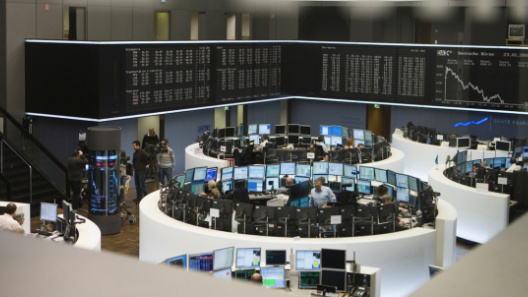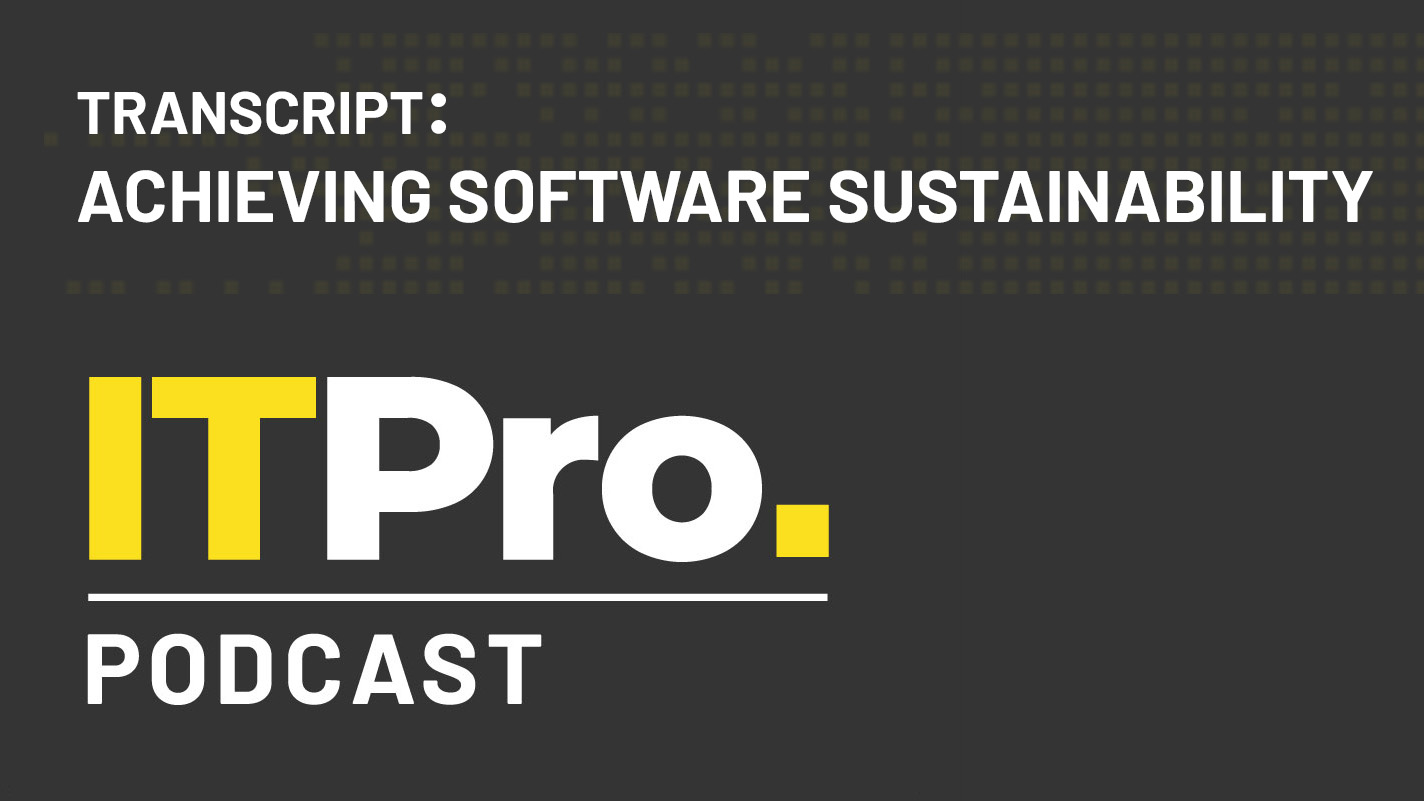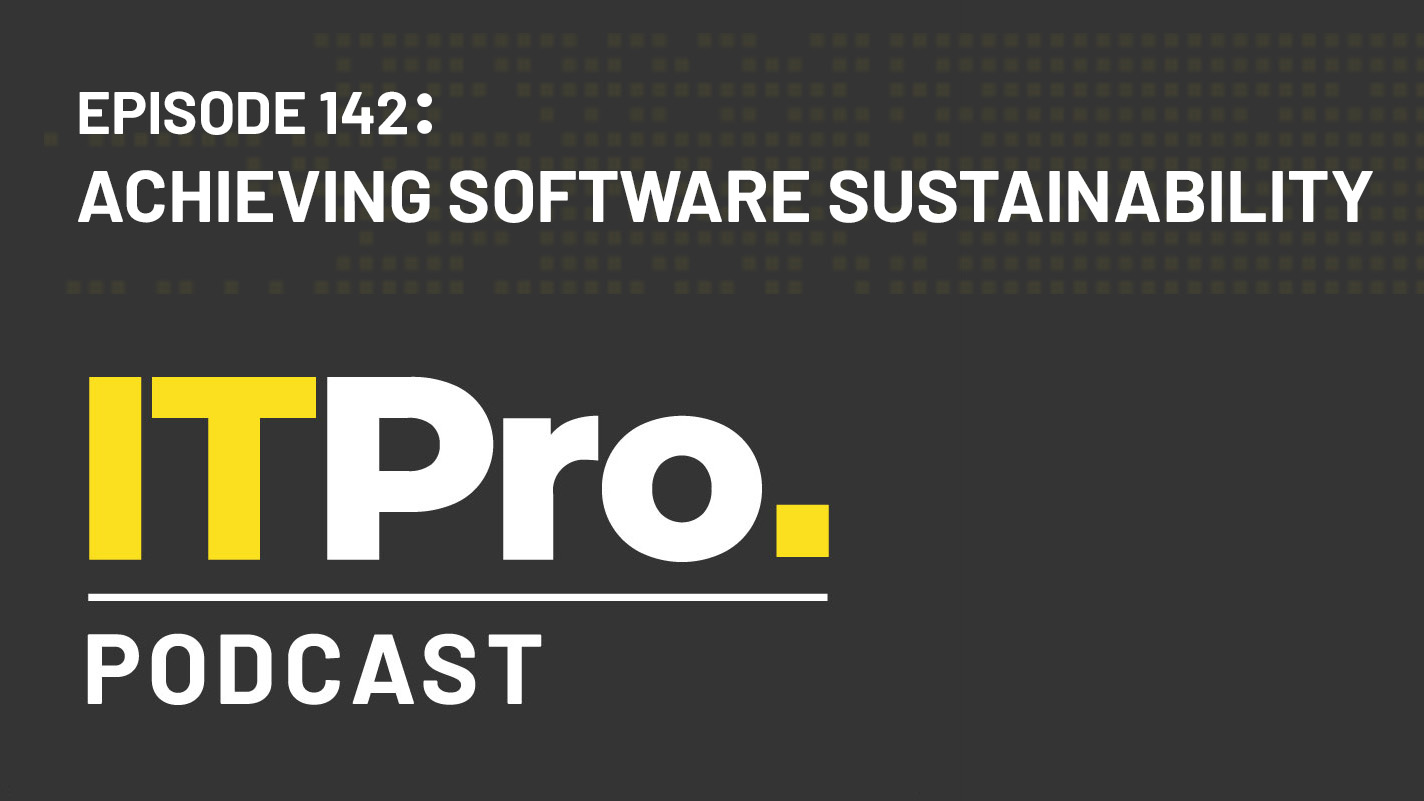UK IT leaders are struggling to meet sustainability targets
Rising cloud costs and fragmented usage data leaves IT decision makers overwhelmed


Sign up today and you will receive a free copy of our Future Focus 2025 report - the leading guidance on AI, cybersecurity and other IT challenges as per 700+ senior executives
You are now subscribed
Your newsletter sign-up was successful
Most UK IT leaders believe their organizations aren’t doing enough to meet their own sustainability targets, new research shows.
In a recent study from IT service management firm Flexera, 93% said sustainability is increasing in priority, yet 83% admit their organization needs to step up.
A confluence of issues are hampering success on this front, however. Rising cloud computing costs are straining budgets, cited by 69% of respondents, while nearly half (46%) said they feel overwhelmed by the volume of cost and usage data they receive.
These surging data volume means sustainability teams are swamped, preventing them from identifying key focus areas.
“Without full visibility of what their technology estate is costing, consuming and emitting, businesses cannot evidence clearly whether cloud and AI investments are advancing or undermining their climate goals,” said Marlon Oliver, senior vice president EMEA at Flexera.
Access to sustainability data is improving, the researchers found, with 79% of IT decisionmakers saying it’s easy to access such data within their organizations. However, sustainability goals often appear to be grouped with regulatory compliance, which is seen as a lower priority than AI integration, cost reduction and risk mitigation.
Flexera recommends integrating sustainability into technology choices, evaluating cloud migration, SaaS adoption, and AI investments through both cost and sustainability lenses.
Sign up today and you will receive a free copy of our Future Focus 2025 report - the leading guidance on AI, cybersecurity and other IT challenges as per 700+ senior executives
Similarly, sustainability metrics should be used alongside financial and operational KPIs to guide investments and measure impact.
Always keep sustainability in mind
Crucially, the study noted that sustainability must be taken into account during IT modernization projects. Researchers said these considerations should be prioritized alongside areas such as security and data protection.
Collaboration across IT, procurement, and sustainability teams should also be encouraged, with clear ownership and incentives for sustainable outcomes.
"Closing the gap between sustainability ambition and execution requires integrating sustainability into every facet of IT —from strategy and procurement to daily operations," said Mark Bradley, senior manager, product management, at Flexera.
"By leveraging robust data, fostering cross-functional collaboration and embedding sustainability into decision-making, IT leaders can drive both environmental and business value."
The research comes as the UK prepares for new Sustainability Reporting Standards, expected to apply for accounting periods beginning in 2026.
The standards, which are aligned with the ISSB framework, will require large and listed firms to report more transparently on climate-related risks and impacts, including greenhouse gas emissions and energy use.
For many organizations, that will mean accounting for the footprint of technology operations, such as data centers and cloud infrastructure, where these are a material source of emissions.
“Boards are expected to show climate progress in ways that can be proven against reporting standards," said Oliver
"Right now, IT leaders are facing rising bills and data that do not add up to a clear story. And until that changes, organisations will find it difficult to deliver the results that regulators, and their own stakeholders, now expect."
Make sure to follow ITPro on Google News to keep tabs on all our latest news, analysis, and reviews.
MORE FROM ITPRO
- Three ways sustainability tech is helping businesses meet climate goals
- Small businesses are ‘flying blind’ on carbon emissions and struggling to meet sustainability goals
- How businesses can make their IT operations more sustainable in 2025
Emma Woollacott is a freelance journalist writing for publications including the BBC, Private Eye, Forbes, Raconteur and specialist technology titles.
-
 Mistral CEO Arthur Mensch thinks 50% of SaaS solutions could be supplanted by AI
Mistral CEO Arthur Mensch thinks 50% of SaaS solutions could be supplanted by AINews Mensch’s comments come amidst rising concerns about the impact of AI on traditional software
-
 Westcon-Comstor and UiPath forge closer ties in EU growth drive
Westcon-Comstor and UiPath forge closer ties in EU growth driveNews The duo have announced a new pan-European distribution deal to drive services-led AI automation growth
-
 Protecting the planet, one cloud at a time
Protecting the planet, one cloud at a timeIndustry Insights Channel leaders have a role to play in making the tech industry more sustainable and adopting GreenOps will be vital
-
 Built for the future of multicloud - Microsoft Azure
Built for the future of multicloud - Microsoft Azurewhitepaper Built for the future of multicloud - Microsoft AzureFuture proof your infrastructure for a competitive advantage
-
 Three innovative technologies to address UPS challenges at the edge
Three innovative technologies to address UPS challenges at the edgeWhitepaper With increasing focus on edge computing comes added pressure for better uninterruptible power supply (UPS)
-
 Accelerating FinOps & sustainable IT
Accelerating FinOps & sustainable ITWhitepaper With IBM's Turbonomic® Application Resource Management
-
 Giving Gen-Z staff a clear purpose can advance business growth, sustainability
Giving Gen-Z staff a clear purpose can advance business growth, sustainabilityNews The demands of new workers and the new economic environment can be solved together, by businesses willing to innovate and foster a working culture
-
 2022 State of the multi-cloud report
2022 State of the multi-cloud reportWhitepaper What are the biggest multi-cloud motivations for decision-makers, and what are the leading challenges
-
 Podcast transcript: Achieving software sustainability
Podcast transcript: Achieving software sustainabilityIT Pro Podcast Read the full transcript for this episode of the IT Pro Podcast
-
 The IT Pro Podcast: Achieving software sustainability
The IT Pro Podcast: Achieving software sustainabilityIT Pro Podcast How businesses can reduce emissions without sacrificing efficiency
